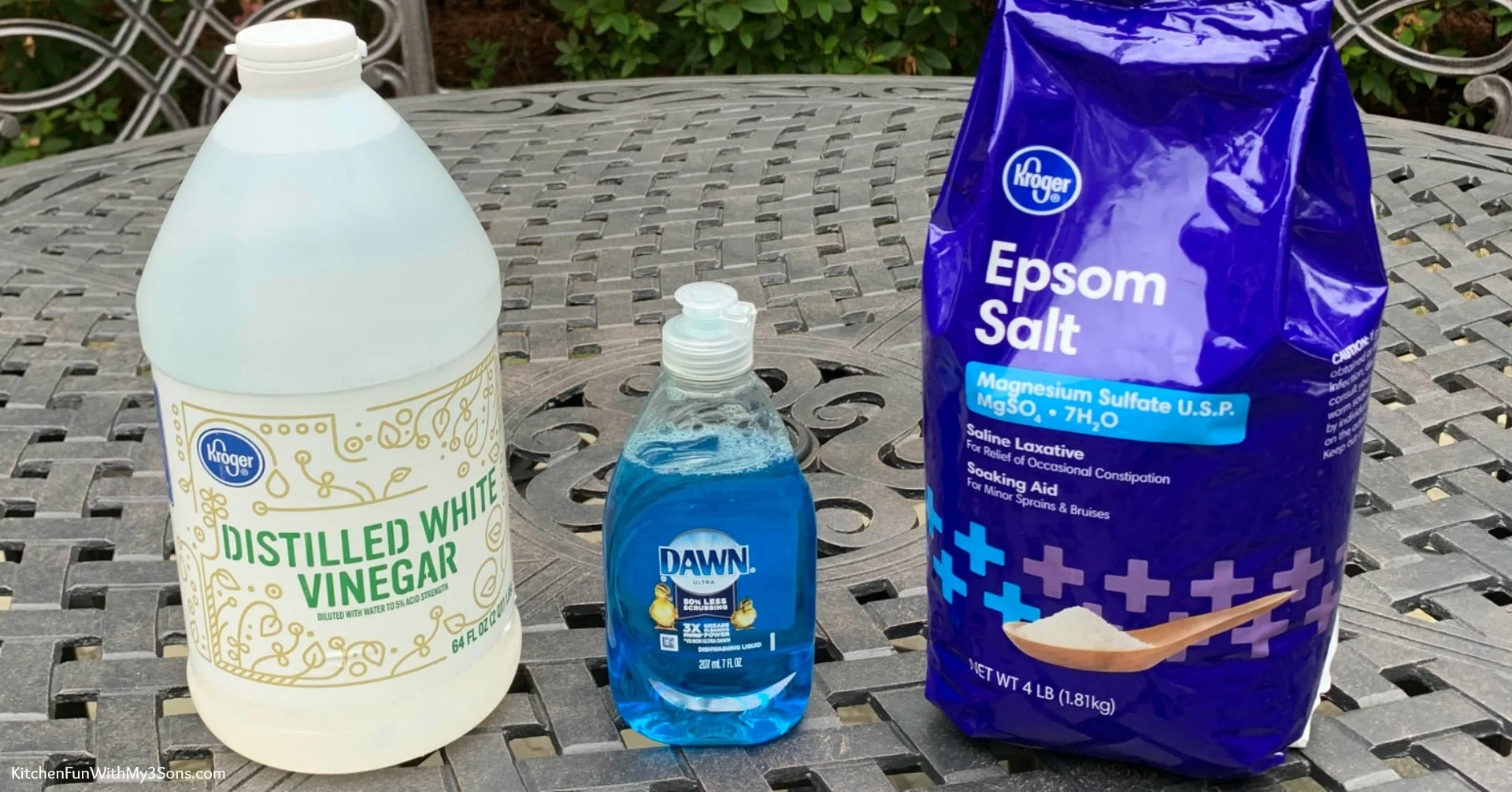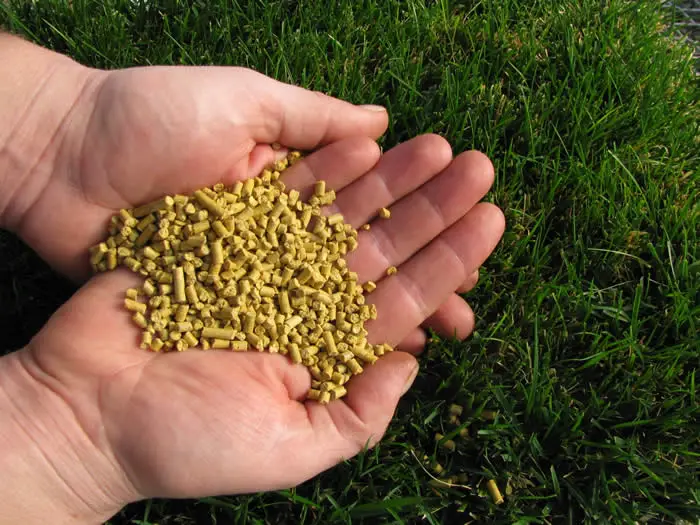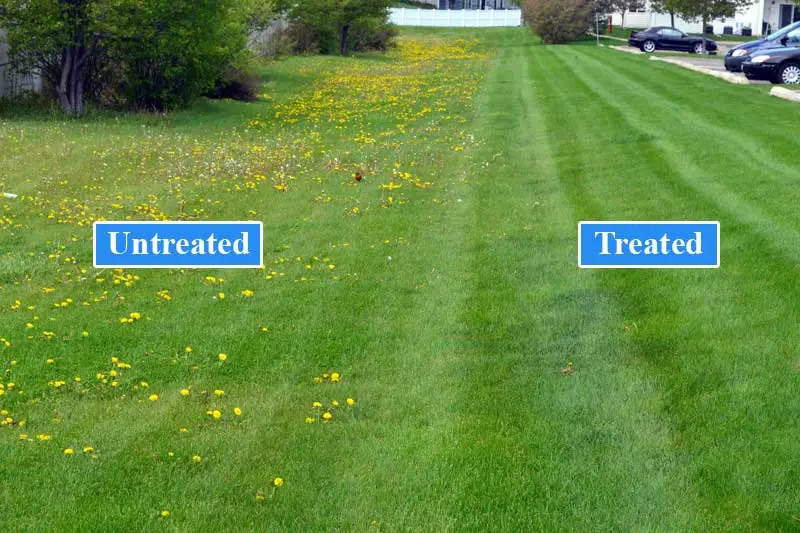No matter how well-planned your lawn is, there will always be unwanted weeds. They may go on your nerve but then you find that you’re running out of your Blindside herbicide. At that moment you just feel desperate for a useful alternative.
So, what are the Blindside herbicide alternatives?
You can use a homemade vinegar solution with water and salt to eliminate weeds from your lawn. Natural pre-emergent herbicides such as corn gluten and rubbing alcohol can suppress the germination of weeds. Ortho WeedClear Weed Killer, RM18 Fast-Acting Broadleaf Weed Killer, and Specteracide Broadleaf Weed Stops are also wonderful blindside herbicide alternatives.
Only knowing names won’t serve your purpose completely. So, keep reading the article to know the making and applying procedures of the alternative.
What Are the Blindside Herbicide Alternatives: Homemade Products
If you don’t have Blindside herbicide to kill the weed, you can perform your job with the help of some homemade recipes that work fantastically to clear up the weed. Let’s get to know them broadly.
| Homemade Alternative | Pros | Cons |
| Vinegar solution |
|
|
| Corn Gluten |
|
|
| Rubbing Alcohol |
|
|
Alternative 1: Vinegar Solution
Vinegar solution is one of the most commonly used homemade alternatives to Blindside herbicide. It is effective for cleaning perennial broadleaf weeds (dandelion, dollar weed, crabgrass, etc) which are less than two weeks old. The smell of vinegar will also keep the animals away for a few days, so you won’t worry about tulip heads being bitten off.
First, let’s get to know the ingredients you need to make this solution.
Ingredients:
- White vinegar (1 gallon)
- Epsom Salt (1 cup)
- Liquid dishwashing soap (1 tablespoon)
- Spray bottle.
How to use:
The use of procedures is ultimately easy. You can easily do it by following the guidelines provided below.
- Mix all the ingredients in a bowl .pour it all into a spray bottle. Then, shake the mix. Allow this mixture to sit for about an hour so that the salt can fully dissolve.
- Then, apply the spray directly to the lawn weeds. But remember to avoid dousing the soil or nearby plant.
- Always apply in sunny weather, so you must check the weather before doing that. Because rain will wash off the solution and most damage can happen after that.

Alternative 2: Corn Gluten
Corn gluten meal is a natural pre-emergent herbicide that can suppress weed germination. It is safe for use on lawns and does not harm beneficial organisms. Unfortunately, it will not kill the grown weeds, but rather a preventive measure for upcoming spread.
Actually, when corn gluten meal is applied to a lawn, it releases organic compounds called peptides that prevent weed seeds from germinating. Inhibiting the development of roots in newly germinated weed seeds prevents the weeds from establishing themselves in the lawn as a result of the peptides.
Corn gluten meal can be purchased in granular form and applied to your lawn according to the directions on the package if you want to control weeds in your lawn. Generally, these guidelines should be followed:
- Corn gluten meal should be applied early in the spring, just before weeds begin to germinate. Winter annual weeds can also be prevented from germinating by applying them in the fall.
- Now, spread the corn gluten meal evenly over your lawn using a spreader or by hand. Be sure to cover the entire area.
- After applying the corn gluten meal, water your lawn to help activate the product and distribute it evenly throughout the soil.
Corn gluten meal is a pre-emergent herbicide, which prevents weed seeds from germinating. It is best to use it as a preventative measure because it won’t kill existing weeds.

Alternative 3: Rubbing Alcohol
Another effective alternative is rubbing alcohol to clear up the weed. Though it can be used as a weed killer, large-scale use is not recommended, since it may harm desirable plants and grass. It is effective for killing broadleaf weeds like dandelion, and plantain, but also has a possibility of adversely affecting the soil.
Ingredients:
- Rubbing alcohol
- Water
- Spray bottle
You can use the cleaning solution by following the procedures below. Let’s get to know them to perform the job properly.
- First, mix the rubbing alcohol with water. For every two tablespoons of rubbing alcohol, dilute it with one quart of water.
- Directly spray the mixture onto the leaves and stems of the weeds you want to kill, covering them completely. Mixtures should not be sprayed on desirable plants or grass, as they can also cause harm.
Keeping rubbing alcohol away from flames or other heat sources is a good idea due to its flammability. Keeping it away from direct sunlight in a cool, dry place is also recommended.

What Are the Blindside Herbicide Alternatives: Commercial Products
There are some fantastic commercial alternatives. You can use them as your preference. Here are my top three picks from the current market to help you choose the best formula for your needs.
| Alternatives | Pros | Cons |
| Ortho WeedClear Weed Killer for Lawns Ready-To-Spray |
|
|
| RM18 Fast-Acting Broadleaf Weed And Grass Killer |
|
|
| Specteracide Broadleaf Weed Stops for Lawns |
|
|
Alternative 1: Ortho WeedClear Weed Killer for Lawns Ready-To-Spray
Ortho WeedClear Weed Killer is designed to specifically target prevalent types of broadleaf weeds, including chickweed, dandelions, and clover. 32 fl oz of this solution covers 16,000 sq-feet area.
One of its advantageous features is the inclusion of a convenient magic wand sprayer, which eliminates the need to purchase a separate sprayer, and allows for the targeted application of the herbicide directly onto the weeds being targeted.
Systemic weed killer penetrates the roots of broadleaf weeds and eradicates them completely, preventing their regrowth.
How to use:
You can easily use this product just by following the guidelines below. Let’s take a look at the application process.
- First connect the spray nozzle to your garden hose properly.
- Then, you need to spray your lawn from the furthest point. And spray it as necessary.
Alternative 2: RM18 Fast-Acting Broadleaf Weed And Grass Killer
If you’re looking to clear large areas of weeds and grass quickly, this herbicide is a great option. It is able to kill around 100 types of weeds. Also, it takes only 12 hours to see effective results.
64 fluid ounces of the solution cover an area of 6,300 sq-feet. The main compound of the solution is glyphosate. It is a versatile chemical also found in herbicides for privet shrubs.
How to use:
- You need to dilute water with the solution to apply on the lawn appropriately. The appropriate quantity of water to dilute the concentrate will vary based on the size of the area you need to treat and the number of weeds present. The product’s instructions will provide the necessary guidance, so simply follow them for the best results.
- To apply the herbicide to your lawn, you’ll need an herbicide sprayer, and be sure to exercise caution when pouring the concentrate from the bottle, as some users have reported leakage issues.
- Then, apply the mixture to your lawn evenly in spot treatments or over the entire lawn.
- You need to skip one mowing before spraying to increase visibility.
Alternative 3: Specteracide Broadleaf Weed Stops for Lawns
This is another fantastic alternative. Which can kill 460 kinds of weeds. In addition, it kills the roots of weeds, which prevents them from growing back. However, it is selective, so it won’t destroy your entire lawn. 32 fl oz of this solution treats an 8,000 sq ft area.
This herbicide delivers fast and noticeable results, typically within 24 hours of application. Additionally, it is water-resistant within six hours, meaning that you don’t need to fret over the rain diminishing its potency.
How to use:
It is important to follow the guidelines below when applying the product.
- Depending on how many weeds you need to kill, you must dilute the solution accordingly. Follow the instruction given with the bottles.
- The temperature should be 45-90° F while applying it on the lawn.
- If you want to apply Spectracide to your yard, you should apply 4 ounces per 1000 square feet
How to Control Weeds Effectively
Several key considerations should be kept in mind when using broadleaf herbicides. Weed control can become frustrating without an understanding of the basic principles of herbicide selection and timing.
- You need to apply the herbicide immediately after the weed’s emergence. Weeds cannot spread further if it is done. Normally the pre-emergent period is from April to May, but the weather patterns may vary depending on your location.
- The temperature of the application day should not be less than 60°F and not above 90°F.
- You can’t apply herbicide in windy weather. If the wind is more than 5mph, it’s not a good day for applying the herbicide.
- After mowing, you should wait at least 2 days. Applying right after mowing is prohibited.
- Stop overwatering the lawns. When your lawn is getting too much water, weeds can proliferate rapidly.
- It is not recommended to apply right after rain. You should wait until it is dry. You should also avoid applying when the lawn is wet after a morning dew.
Frequently Asked Questions (FAQs):
Can I use boiling water for killing weeds?
Yes, you can use boiling water for killing weeds. No mixing is required for application, and it can be applied at any time, regardless of the presence of sunlight or precipitation, day or night. You must boil enough water to penetrate the roots of the weed’s leaves, then pour it over its leaves.
What are broadleaf weeds?
Broadleaf weed refers to weeds with large, wide leaves. Chickweed is a common broadleaf weed that grows during winters and dies during summers. Clover is another harmful broadleaf. The clover weed prefers moist soil and shallow roots. Also, Dandelion is another broadleaf weed with long roots.
What are selective herbicides?
Selective herbicides are chemical compounds formulated to eliminate or harm particular broadleaf and grassy weeds while leaving other plants unharmed. When weeds are present among desired grasses and plants, they are a good choice. Due to the lack of risk of inadvertently harming your grass, there is no need for cautious spot treatments.
Conclusion
Hopefully, you’ve got to know the brilliant Blindside herbicide alternatives. There is no need to tolerate weeds because they are basically annoying. And you got to know the most useful alternative to eliminate them from your lawn.
You should choose the right one based on your needs. Herbicides can either stop their growth or kill them within days if used correctly. All the best wishes!
- Why Are There Still No Tomatoes in My Tomato Plants? Let’s Fix the Issue! - July 13, 2023
- Water Propagation White Stuff on Roots: Everything You Should Know! - July 11, 2023
- String of Dolphins Drying Up: Solved! - July 11, 2023

